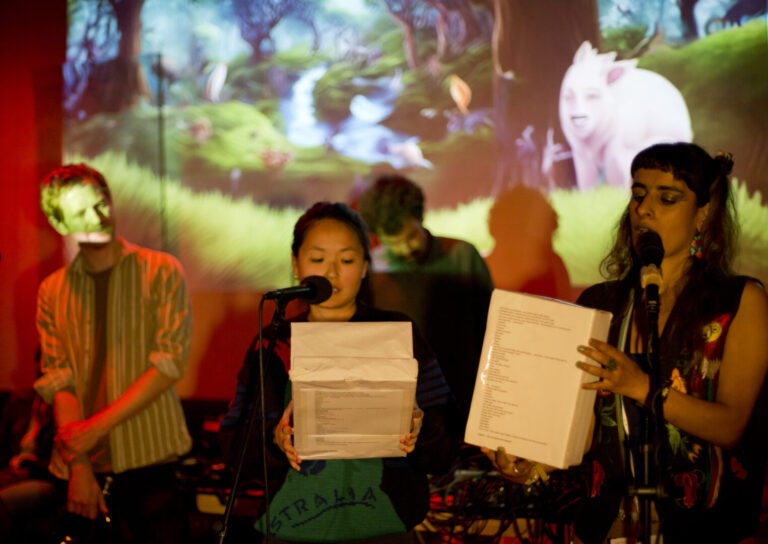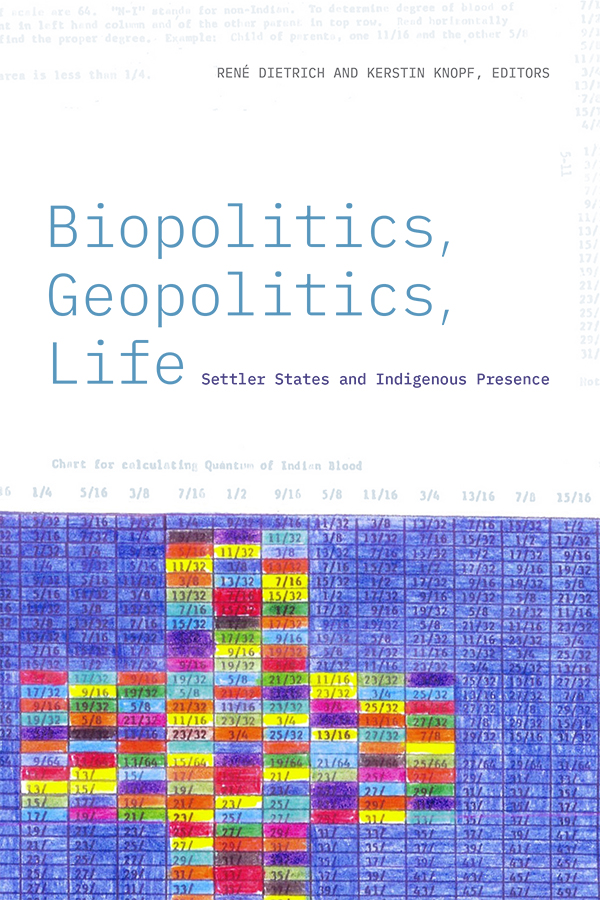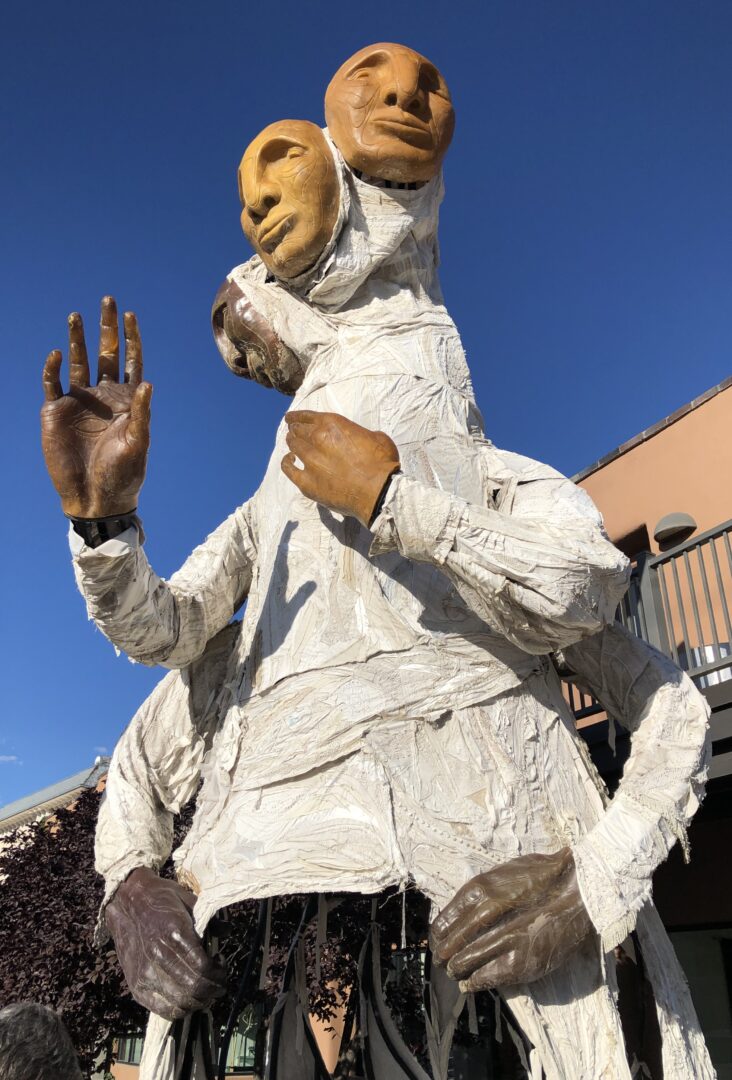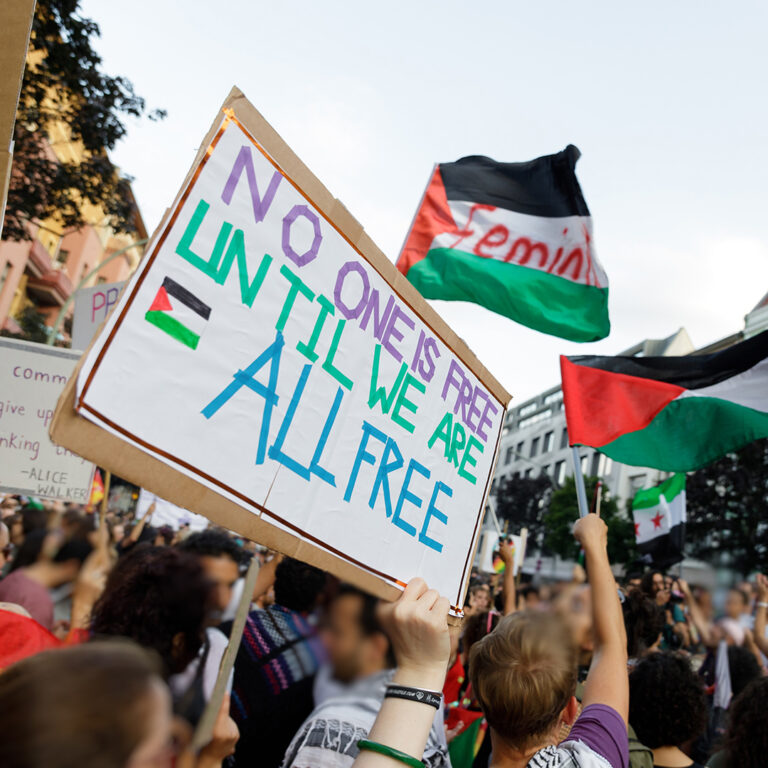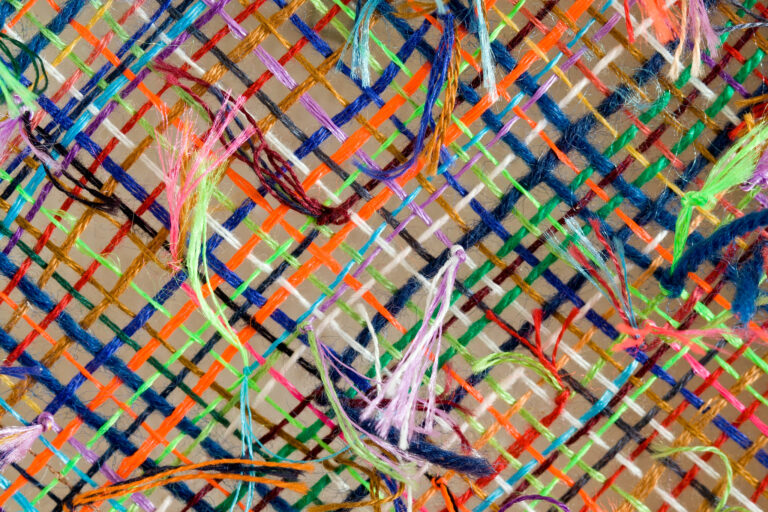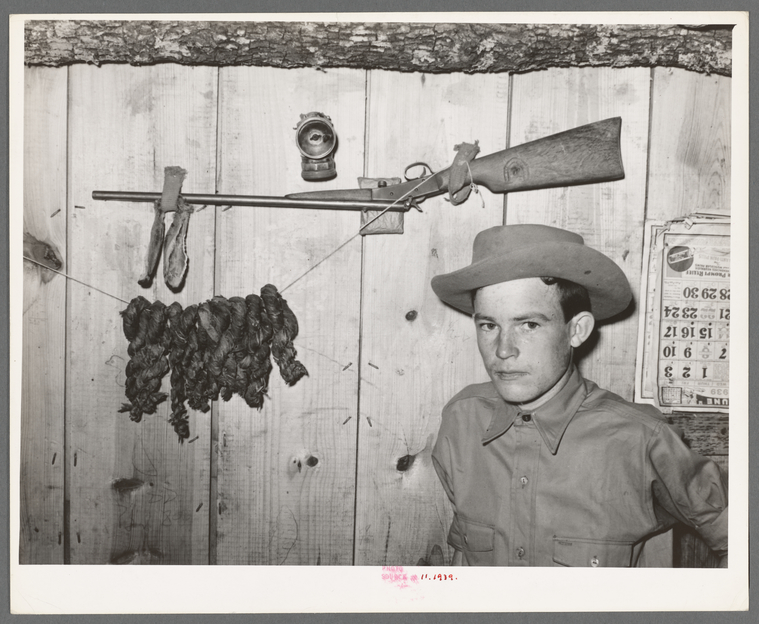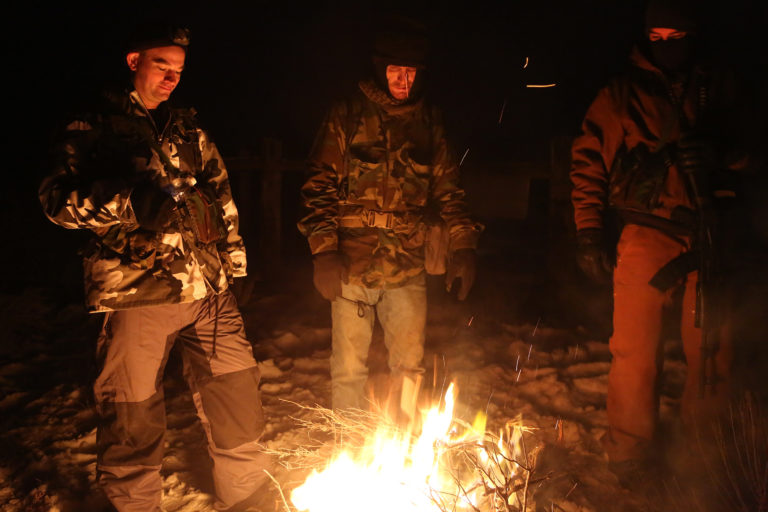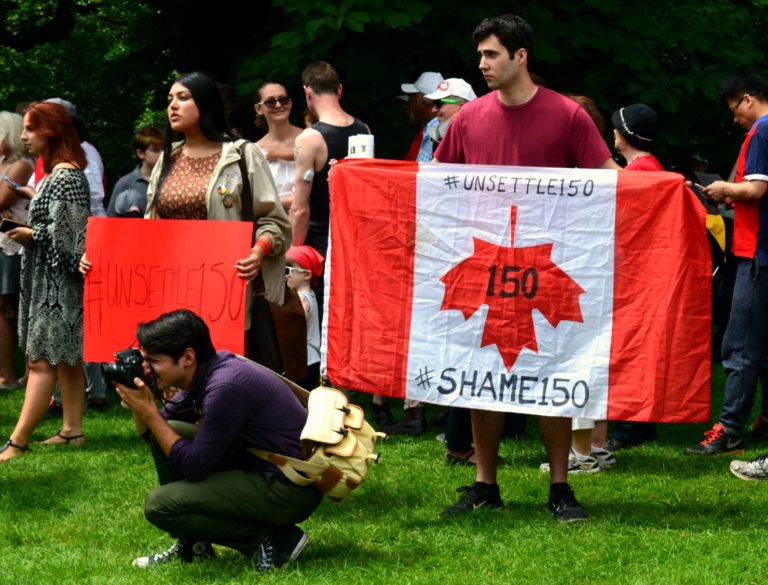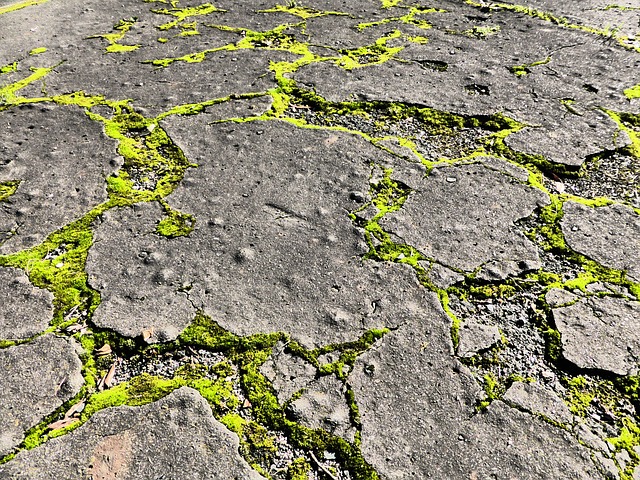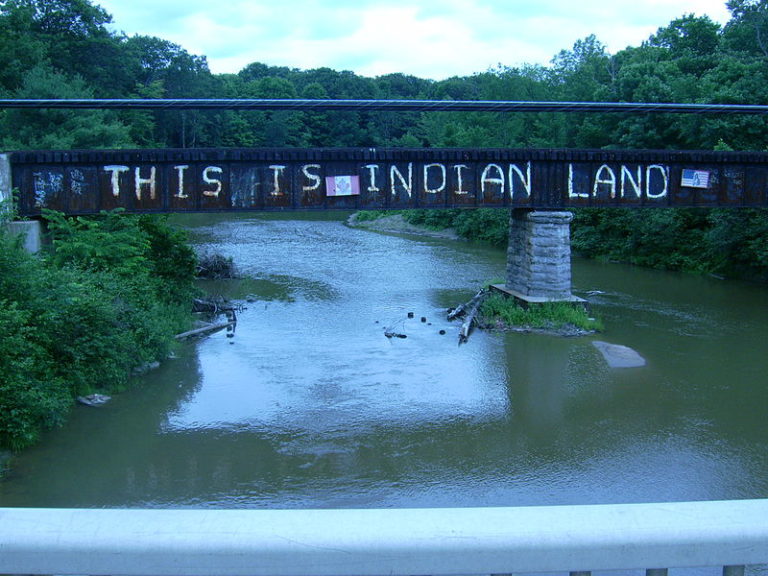This article critically engages with the emerging “media forensic” turn at the intersection of visual culture, new media practice, and humanitarian and political activism. This field purports to subvert dominant forensic and surveillant regimes, weaponizing these mediated modalities to document acts of humanitarian and political violence. Such practices have been widely celebrated for enhancing forms of legal and political accountability and justice. However, there are concerns that these practices may inadvertently mirror the state-sanctioned regimes of control and power they wish to expose, reinforcing settler-colonial histories of the forensic and evidentiary, whilst also excluding counter-hegemonic and experimental modes of emergent media investigation. To address these limitations, this article proposes a radical counter-history and praxis of the forensic, drawing on Indigenous epistemologies and critical decolonial thought. Analysing the work of the Indigenous media collective the New Red Order (NRO), the article argues that their ongoing Culture Capture project (2017–) exemplifies a counter-hegemonic mode of emergent media forensic practice. By asserting Indigenous epistemological agency over such modes of media investigation, the NRO challenges Western forensic practices’ hegemony. The article advocates for expanding the scope of media forensic work to include diverse publics, communities, and aesthetic-political practices that offer subversive, decolonial forms of evidentiary practice.
Keyword: settler colonialism
Without Rethinking Colonialism and Racialization, a Sustainable Future is Not Possible
In this article, I talk about the performances of global capitalism, its relation to colonization and racialization, and the ways it hinders the well-being of vulnerable bodies. An understanding of the relation between post-colonialism and post-socialism is crucial to this discussion. I therefore start from a territory that is no longer conceivable today, namely former Eastern Europe and its post-socialism of 1990. I then proceed to discuss the relation of post-socialism to post-colonialism and capitalism. I conceptualize and discuss a diagram that illustrates the relations between the former East, the West, the North, and the South, and in particular, the relation between labour and capital and between capitalism and colonialism across these territories. I suggest that if we are to dismantle imperialism, that is, terminate capitalist colonialism, we need to rethink the racial/colonial divide and the imperial/colonial divide.
Conscious Delirium of a Traveling Body: The Poetics and Politics of a Creative Practice
The question of political economy in the arts offers a way into a creative-critical reflection on the challenges associated with navigating identity labels and living a freelance artist’s life pressured to conform to institutional expectations particularly within the UK’s art scene. This piece is a personal account of a body resisting becoming a symbol, of staying conscious of our socio-political landscape and the ongoing Israeli settler-colonialism. I draw on examples from three of my artworks: the collaborative project From the Lips to the Moon, ongoing nights of longform improvised music and poetry in London; In Observance, a performative research and intervention at the United Nations in Geneva, involving archival documents related to Palestine; and Mishandled Archive, which involves dispersing family photographs and documents in public places, accompanied by daily dances. Through these works, this essay asks: How can historical evidence of imperialism and settler-colonialism be absorbed or resisted within the body? How can we transform loss into movement and togetherness? How late is too late as mounds of rubble and bodies multiply?
Review of Biopolitics, Geopolitics, Life: Settler States and Indigenous Presence edited by René Dietrich and Kerstin Knopf (Duke University Press)
Questions of violence, governance, life, and land have long animated critique within settler colonial studies and Indigenous studies. Biopolitics, Geopolitics, Life interrogates these lines of inquiry by centering Indigenous politics and onto-epistemologies from a variety of disciplines and across a range of settler colonial contexts to address the enmeshments of bio- and geopolitical logics and practices.
We Are Not (Yet) Nonbinary
I am addressing this paper to other white temporarily-able-bodied settler feminists interested in moving, not just toward a queer (queerer?) horizon, but toward a nonbinary liberatory futurity as a collective political aspiration (not an identitarian goal of self-actualization). In this paper, I consider how we might mobilize the nonbinary as a freedom practice, a practice building toward a future where we are all free. Imagining and creating a liberatory inclusive future necessarily requires dismantling the constrictions of reproductive futurity, constrictions built on binary analytics. This paper begins with an outline of how a sense of urgency, legal and medicalized frameworks, and anti-victimism have dominated post- Dobbs responses and reinvigorated an allegiance to retrograde, repressive reproductive futurity. This brief discussion of post-Dobbs responses sets the stage for an exploration of a more expansive, inclusive, collective futurity beyond the settler state, a freer futurity made possible by mobilizing a nonbinary intersectional critique anchored in queer/crip/Indigenous analytics.
Editors’ Introduction: Cultural Studies toward a Free Palestine
Responding to Palestinian organizers’ calls to use our voice, continue to engage in conversations, and to speak out, this statement articulates what we see as the abolitionist and anti-colonial way forward—the only way we can commit to a free Palestine. Imagining and building alternatives is the future, the horizon of possibility, that Lateral, as part of the intellectual and activist project of cultural studies, is imperfectly but consistently striving toward. Here, we highlight work in this issue, including the Towards Third Worlding forum, articles, book reviews, and the second installment of the Positions podcast. We continue to welcome authors to join in this work of pushing the field of cultural studies further, towards its promise of critical inquiry matched by political engagement.
Decolonization and the Third World
This essay asks why the Third World has become a symbol of poverty and failed infrastructure while the political imperative towards decolonization has gained popularity. By examining histories of decolonization in mid-twentieth century and the subsequent establishment of postcolonial nation-states that often ignored, suppressed, or actively participated in settler colonial occupations both globally and internally, I argue that there needs to be a widespread reckoning with what constitutes anti-colonial liberation.
Review of The Black Shoals: Offshore Formations of Black and Native Studies by Tiffany Lethabo King (Duke University Press)
In this ambitious first book, Tiffany Lethabo King disrupts what she sees as settler-colonial studies’ tendency to privilege the settler/conquistador as the ethical subject of Western theory. To do so, she undertakes the urgent work of considering historical, ceremonial, imaginative, and theoretical ways that Native and Black studies intersect and overlap within the North American context. Drawing in particular upon Afro-pessimism (for instance Frank Wilderson, Saidiya Hartman, Katherine McKittrick, Alexander G. Weheliye, and Sylvia Wynter) as well as Native studies’ refusal of sovereignty as a political, ethical, and material formation (Audra Simpson, Glen Coulthard, Jodi Byrd, and Andrea Smith), King joins the likes of Tiya Miles in seeing as insufficient any account of settler colonialism or Western humanism that does not consider how Black and Native epistemologies and histories intersect.
Review of Possessing Polynesians: The Science of Settler Colonial Whiteness in Hawai`i and Oceania by Maile Arvin (Duke University Press)
Arvin explains how dispossessing Polynesians was predicated on a logic of settler colonialism inflected by white supremacy. Casting Polynesians as white—specifically, as “almost white”—as opposed to distancing Polynesians from Caucasians, simultaneously provided white settlers the justification they needed to occupy large swaths of Oceania and precluded Polynesians from enjoying the full set of rights available to non-almost whites. By establishing a clear racial continuity between settlers and Polynesians, possession through whiteness made whiteness indigenous to the islands; doing so “suited [settlers’] own claims of belonging to Polynesia while [also soothing] colonizers’ racial anxieties about those they dispossessed.” Throughout the book, Arvin argues that anti-Blackness was as pronounced and as integral in possessing Polynesians as whiteness and calls for future research that more centrally examines the specific and nuanced functions of whiteness, Blackness, and Indigeneity in Melanesian and Micronesian contexts.
Introduction: US Gun Culture and the Performance of Racial Sovereignty
This introduction examines gun culture in the United States and argues that it is a product of the longstanding practices of settler colonialism, anti-Blackness, and misogyny that have shaped life in the United States. Invoking an anthropological definition of culture, it argues that gun violence is a central facet of US political and social life and that performances of gun use and ownership, particularly when enacted by white men, embody a kind of “racial sovereignty,” or a violent limitation of the practical applicability of citizenship to those who promulgate whiteness, maleness, and violence as primary markers of full belonging in the civic community.
The Necropolitics of Liberty: Sovereignty, Fantasy, and United States Gun Culture
This article approaches the speculative fiction of the survivalist right as an archive that can illuminate the continuities between the fantasies of necropolitical power that animate the radical right and undergird the sovereignty of the United States. Focusing on Malheur National Wildlife Refuge occupier LaVoy Finicum’s 2015 novel Only by Blood and Suffering: Regaining Lost Freedom, this essay argues that such survivalist fiction, in imagining a future civil conflict that enables the reinstatement of Lockean property rights, should be understood as settler colonial rather than anti-statist. In representing the dystopian future in which “public lands” are reopened as a frontier, survivalist novels like Finicum’s reaffirm, rather than challenge, the fantasy that produces the constituted power of the United States.
Webs of Relationships: Pedagogies of Citizenship and Modalities of Settlement for “Muslims” in Canada
Immigrants to Canada must pass a set of pedagogical gate-keeping exercises that compel settler socio-spatial relations to allow them to come into the fort of the nation-state as neoliberal multicultural subjects. Bringing together Sunera Thobani’s concept of exalting the white subject and Sherene Razack’s theorizations on Muslim eviction from Western politics, I argue that those racialized as Muslim are positioned as perpetual immigrants, compelled to exalt whiteness or be evicted. Caught between an unresolved tension of settler spatial relations to nation and Indigenous spatial relations to Land, I examine what decolonial subject positions are available for “Muslims” using the Canadian citizenship study guide and oath as focal points. I foreground an Indigenous analytic and my Arab lived experience to do a contrapuntal reading of the social construction of Canada in the study guide and trace how the relationships to nation espoused in the manual are incommensurable with the relationships to Land fundamental to Indigenous worldviews. Throughout the paper, I draw on the experience of Masuma Khan, who was censured by her university and the public when she advocated that Canada 150 be remembered as Indigenous genocide rather than a celebration of nationhood, to unpack how racialization colonizes and colonization racializes.
Review of Alien Capital: Asian Racialization and the Logic of Settler Colonial Capitalism by Iyko Day (Duke University Press)
Iyko Day makes a compelling intervention in discussions of race, capital, and settler colonialism. Her book presents a theorization of the abstract economism of Asian racialization by examining how social differentiation functions as a destructive form of abstraction anchored by settler colonial ideologies of romantic anticapitalism. By engaging with capitalism’s abstraction of differentiated gendered and racialized labor in order to create value, Day’s project diverges from scholarship arguing that capitalism profits from labor via the production, rather than the abstraction, of racialized difference (Lowe 1996; Roediger 2008). Her book engages a rich multimedia archive and uses principal historical instances of Asian North American cultural production as theoretical texts to examine key racial policies since the 19th century: Chinese railroad labor in the 1880s, anti-Asian immigration restrictions; internment of Japanese civilians during World War II, and the neoliberalization of immigration policy in the late 1960s.
Toward Alternative Humanities and Insurgent Collectivities
Introduction to Part II of the forum, Emergent Critical Analytics for Alternative Humanities. Here, emergent scholars respond to essays by J. Kēhaulani Kauanui, Kyla Wazana Tompkins, Julie Avril Minich, and Jodi Melamed, each of whom elaborated on the alternative possibilities of dealing with the legacies of settler colonialism, new materialisms, disability, and institutionality in Part I, published in Lateral 5.1.
Ongoing Colonial Violence in Settler States
Response to J. Kēhaulani Kauanui, “A Structure, Not an Event: Settler Colonialism and Enduring Indigeneity,” published in Lateral 5.1. Jafri articulates how a critical race feminist/queer lens makes possible thinking that sees the repetitions of racialized, gendered, sexualized colonial violence.


